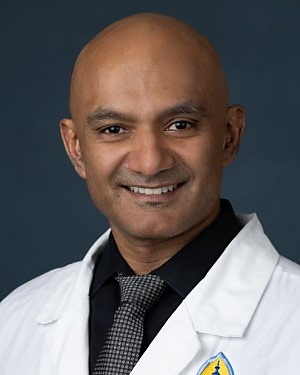Research Lab Results
-
Balagopal Lab - Viral Hepatitis and Translational Virology
The Balagopal Lab has adapted high-resolution tools to study viruses in situ. Specifically, we were the first to quantify hepatitis C virus (HCV) infection in single hepatocytes by developing single-cell laser capture microdissection (scLCM) and integrating this tool with highly sensitive quantitative real-time PCR. We reported that HCV infects a minority of hepatocytes that are found in geospatial clusters. More recently, we (PIs Balagopal and Thio) integrated scLCM with droplet digital PCR (ddPCR) to reveal the first observations of hepatitis B virus (HBV) infection at single cell resolution in the liver. We found that HBV infects nearly all hepatocytes prior to antiviral therapy. However, during antiviral therapy, HBV infection is diminished while viral transcription is markedly attenuated. Our lab has also focused on HIV-1 infection and immune activation for over a decade. Most recently, we have studied type 1 interferon responses to HIV-1 using RNA sequencing (RNAseq). Using this technology, we identified novel interferon-stimulated genes (ISGs) that are associated with HIV-1 restriction in vivo.
-
Tinsay Woreta
The Woreta Lab does clinical and translational research on Hepatocellular Carcinoma; Liver Transplantation Outcomes; Chronic Viral Hepatitis.
-
Saleh Alqahtani Lab
The Saleh Alqahtani Lab has conducted clinical research on the management of fatty liver disease and viral hepatitis, including novel therapies. We’ve also been involved in various clinical trials related to liver cirrhosis, liver cancer and outcomes of liver transplant patients. -
Mark Sulkowski Lab
Research in the Mark Sulkowski Lab focuses on hepatitis B and hepatitis C. We've conducted clinical research related to the management of viral hepatitis, including novel agents. Other studies focus on adult patients at the Johns Hopkins site of the National Institute of Diabetes and Digestive and Kidney Diseases (NIDDK) Hepatitis B Clinical Research Network as well as the National Institute of Allergy and Infectious Diseases Adult AIDS Clinical Trials Group. -
Stuart C. Ray Lab
Chronic viral hepatitis (due to HBV and HCV) is a major cause of liver disease worldwide, and an increasing cause of death in persons living with HIV/AIDS. Our laboratory studies are aimed at better defining the host-pathogen interactions in these infections, with particular focus on humoral and cellular immune responses, viral evasion, inflammation, fibrosis progression, and drug resistance. We are engaged in synthetic biology approaches to rational vaccine development and understanding the limits on the extraordinary genetic variability of HCV.
-
Andrea Cox Lab
Research in the Andrea Cox Lab explores the immune response in chronic viral infections, with a focus on HIV and the hepatitis C virus (HCV). In our studies, we examine the role of the immune response upon exposure to HCV by examining responses to HCV in a longitudinal, prospective group of high-risk individuals. This enables us to compare the innate, humoral and cellular immune responses to infection with clearance versus persistence. Through our findings, we seek to identify mechanisms of protective immunity against HCV infection and improve HCV vaccine design.
-
Ahmet Gurakar Lab
The Ahmet Gurakar Lab is interested in bioartificial liver dialysis systems and the application of total plasma exchange in the treatment of liver disorders.

